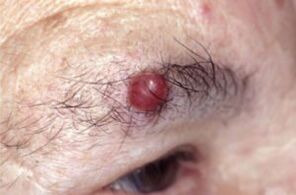
Human papillomavirus (HPV) is located only in the basal layer of the skin, and its reproduction occurs in the upper layer.This disease is characterized by its chronic form and has periodic recurrence.
Read more about HPV, its description
HPV infects more than half of the world's population.Some of them are just carriers of the disease, while in others, the virus manifests as skin papillomatosis, mucosa.Sometimes, this viral disease may be a pathogen of cell carcinoma.HPV is an infection of the Papavivilidi family that can infect and alter epithelial cells.This benign tumor is formed in any area of the body:
- neck;
- under the chest;
- on the belly;
- Face;
- on the genitals;
- in the armpits;
- on the mucosa of the mouth, nose, lips;
- On the mucosa of the internal organs.
This infection is an intracellular parasite that cannot reproduce independently, and human cells are used for this purpose.The virus introduces its DNA into the human chromosomes and therefore parasitizes for a long time.As immunity decreases, you can observe significant activation of the disease.This fact determines the need for treatment of HPV.This infection develops in cells in the body, but can also exist outside it, but not long.In the cells of an organism, it causes its division to fail.
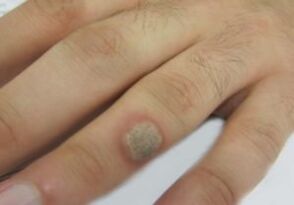
Incubation and development stages
The incubation period of the virus is different.This type of virus is characterized by hidden currents.The subclinical form of the disease process is a simple examination of the rash, which is characterized by the appearance of a simple rash that is uncomfortable to the patient in the genital area.You can be infected with a variety of papillomaviruses immediately.Under the influence of certain factors, the virus is activated and begins to reproduce, and the disease enters a period of clinical manifestations.In 90% of cases within six months of each year, self-repair occurs in some cases, and chronic recurrence of the disease may occur, while the likelihood of malignant tumors is high (depending on the type of virus).The disease takes place in four stages (stages):
Stage 1 (Initial) - The potential course of papillomavirus infection.The virus is in the body, but does not appear and will not cause cell transformation.At this stage, it can be identified by analysis of PCR.
2-Clinical signs appear - in the form of skin growth.The virus causes accelerated division of epidermal cells.At this stage, the virus is detected during PCR, cytology and histology (detected by the presence of hypertrophic high tumors).
3-Dysplasia.The structure of the cell (bound polycythemia) changes - visible under the microscope, as viral DNA begins to interact with DNA cells and causes the development of a comprehensive form of SO known as SO.for diagnosis, using PCR, cytology and histological methods, and colposcopy;
Stage 4 - Cancer.Virus development leads to cell mutations and the occurrence of malignant cells.Invasive cancer has formed.Diagnosis occurs in all the methods and clinical manifestations mentioned above.
Types of HPV
More than one hundred types of HPVs were identified that infected the urogenital tract of the human urogenital tract that affects the skin epithelium and the mucosal epithelium of the reproductive organs - 35 species.For all types of HPV, use classifications based on manifestations, rashes, and other skin manifestations.The tip HPV with description looks like this:
- Different types of warts of HPV types 1-5 are responsible.
- Warts (they look like corn) - 1-4 type HPV.Usually formed where corn or compression occurs.In such places, the skin becomes thicker and causes unpleasant sensations when pressed.Such warts will not pass through themselves and need surgery to remove them.There are two subspecies of sole warts.One species sprouts deep into the fabric, causing a lot of damage, another type resembles multiple growths, as if they are with each other - this wart has little to no pain
- Flat warts - 3, 5, 10, 28, 49 types.Most commonly, the palms and the face are shocking.Often, they are found in young people, because this type of wart is called young.The body often deals with this infection.
- Common warts-27 HPV types;
- Vulgar Warts - Type 2 virus (usually, the body itself deals with this type of virus).It is transmitted to the domestic mode;
- Influencing the vagina, vulva, genitals, cervix, uterus, anus, male spicy warts can be found on the head of the penis and on the skin of the foreskin, and their location in the respiratory tract - Type 6 6, 11, 11, 11, 11, 11, 11, 11, 11, 11, 11, 11, 13, 13, 16.18, 33, 33, 33, 33, 35;
- HPV has a high risk of carcinogenicity, leading to precancerous condition-type 39;
- Founded epidermis edema.It can be found in two types: called HPV 5, 8, 47 - For skin cancer, in 10 cases, the virus is in the patient's blood, and the other is caused by HPV 14, 20, 21, 25, which usually causes benign tumors.
- Laringeal papillomatosis - Type 11 virus.It usually spreads from the mother to the child, but can be infected with oral sex.If the amount of papillomatum is large, breathing worsens, swallowing, and hoarse sounds can cause difficulties;
- Bowenoid Papulez.This species is caused 16, sometimes 18, 31-35, 42, 48, 51-54, and its type is HPV.In most cases, many sexual partners may occur as representatives of half of males.On the outside, these formations look like semicircular or flat growth, with smooth or rough surfaces and varying colors - from total light to almost black.The disease can be performed on its own, a new info type virus.
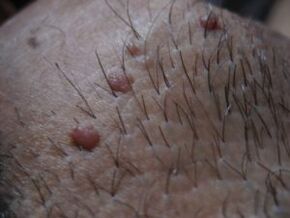
Symptoms and details of HPV in men, women and children
In order to overcome early infections, humans have very strong immunity.In most cases, the disease does not develop, and there is no doubt that the presence of HPV is present, as external symptoms may not occur.But after a period of time (months or years), some signs of HPV infection may occur.Statistics show that only 5-10% of people with external symptoms of HPV (human papillomavirus).The disease is asymptomatic - most of the patients show no signs of illness.When viruses are activated, various types of growth may occur.The localization location also talks about the type of virus.For example, papillomas have the form of soft-elongated growth (no thread warts) attached to the legs, and the color may not differ from the color of the skin, but also have pigmented pigments.Balchi-shaped growth may occur, soft and soft.
In women, the details of the disease process are that the development of the disease can occur in hidden forms, but sometimes lead to the formation of genital papillomas.After being infected with the virus, women may not observe any symptoms before the onset of menopause, at which point the virus causes malignancy in the mucosal cells of the reproductive organs.To prevent the development of cervical cancer caused by the presence of HPV, regular checkups from doctors will help.Because the external disease may not show up.In children, warts on the skin, laryngeal papillomatosis (usually a form of chronic reflux) may develop under the influence of the virus.Papillomatosis in the throat can cause respiratory problems until asphyxiation syndrome.Skin warts are found in 12% of school children, the most common skin disease in children.

HPV and pregnancy
For pregnant women and unborn children, HPV in pregnant women is not the most dangerous disease.Only when 6 or 11 VPV types are found (causing genital or anal boreomas) are expected to remain vigilant, which may have consequences in the form of respiratory papillomatosis when spread to the newborn.The pore foundations present in such quantities or where fetal elimination can be prescribed for cesarean section, because during normal birth, condoloma causes the development of bleeding.All other forms of papilloma (non-ruling lesions) are harmless for the child himself and for the pregnancy process.
Diagnose and the people you need to contact
The following research methods are used to diagnose papillomavirus:
- Personal examination of the patient;
- blood test;
- Colposcopy;
- Tsytology Smear-Papa test;
- Organizational histology;
- PCR is a polymerase chain reaction.This analysis allows not only to understand the presence of a virus, but also to determine its type.However, if the analysis is positive, this does not mean that this type of HPV will not pass on itself.The analysis also determines all types of papillomaviruses.
- urethrascopy;
- Biopsy.
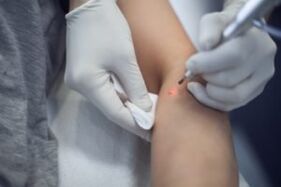
If there are no external signs of the rash form, the patient has no complaints and the presence of the DNA of HPV is determined only by analysis - it can come from a transient viral infection (one person is the vector).Because HPV may be a cause of different organ diseases for doctors in different directions.In the presence of warts on the skin of the face and body, they turn to dermatologists.With plantar warts - a dermatologist or surgeon.Constutu in men - for urologists (surgeons), gynecologists (surgeons).If there is an assistive tumor in the anal area, contact a pro-regulatory doctor is required.If wart epidermis is suspected, the dermatologist or oncologist will be present.Laringeal papillomatosis requires an appeal to an otolaryngologist or surgeon, Boenoid Papulosis - you need to contact a urologist or Venereoloks.Diseases such as microphosphoma disease, vestibular papillomatosis also require differential diagnosis - unlike HPV, no treatment is required because the similarity of external signs is a variant of the anatomical normative.Lack of HPV will show the specification values for the blood test.
treat
So is it completely treated with HPV?Today, it is not known that an antiviral drug that can remove HPV from the body.Different interferons and other drugs in this series - only reduce existing dystumors, but not new dystumors.The main treatment method is to remove papilloma.The main removal methods are as follows:
- surgical.It is performed under local anesthesia;
- Radio surgery.Use a radio electrode to cut off the tumor and coagulate blood vessels.After making anticorrosion bandages;
- laser.This method is contactless and bloodless.The shell still exists where it is removed and healing occurs.The disadvantage of this method is the high risk of recurrence of the disease, the relatively high price, and the need to grind the remaining scars.
- Electrocondensation.It is similar to the first two approaches based on the results and validity.
- Freeze-condensing.After several meetings, the papilloma was completely removed.
Although external manifestations of the virus are completely removed with the help of these methods, this is not considered an absolute infection treatment but only relative, because a person does not stop becoming a virus carrier and warts may recur after a period of time.For all categories of patients (male, female and child), there is no universal approach to no surgical treatment.Laser removal can only be considered an alternative.However, when applying it, there is a risk of malignant (malignant) papilloma.After the surgery, prevent swelling and antibiotic prescribe to avoid wound infection by infusion of a steroid medication.During treatment, HPV should be completely stopped from sexual intercourse until a full cure is performed, and tested and treated if necessary.

Treatment and folk therapy at home
In addition to traditional treatments, I also use other people who are officially recognized as medications that can be performed at home:
- Process warts with salicylic acid.Daily, the warts should be treated with an acid solution (15-20%).This method has one disadvantage - it should be processed for a long time;
- Cream treatment.They are lubricated with warts three times a week.However, when used, it may feel itchy, erosion, and redness of the skin.
- Retinoid form.They handle warts - 12 weeks.It is also prohibited during pregnancy;
- Injection every 7 days in the focus of infection within three to four weeks.Use is prohibited during pregnancy;
- Burn warts, papillomas and destruction of pathogenic microorganisms.Warts should be continuously treated within an hour.Then take a week off and handle it.If the papilloma does not disappear, another treatment was performed 14 days later, so no more than 4 procedures were exceeded.It is forbidden to use in elderly warts and pediatrics;
If we talk about treatment of pure folk remedies, then the use of Selandin is a huge hit.Its juice is treated with warts several times a day.When it turns dark, dark skin will be removed and continue to apply until the warts are completely removed.
Prevent disease
The main measures of prevention are:
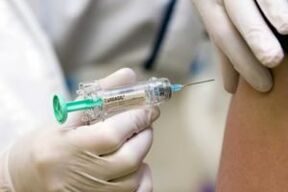
- Comply with personal hygiene in public places;
- Adhere to a healthy lifestyle and stay immunized;
- A permanent partner intercourse with an unverified partner - using a condom;
- Enough vitamin intake;
- When the cervical mucosa is mature and can protect yourself, you will have sex no earlier than 18 years;
- Avoid artificial termination of pregnancy and sexual behavior;
- Treat inflammatory diseases promptly.
During vaccination, some side effects can sometimes be observed when the vaccine is introduced in the form of worsening, fever, redness in the skin, redness in the skin.















